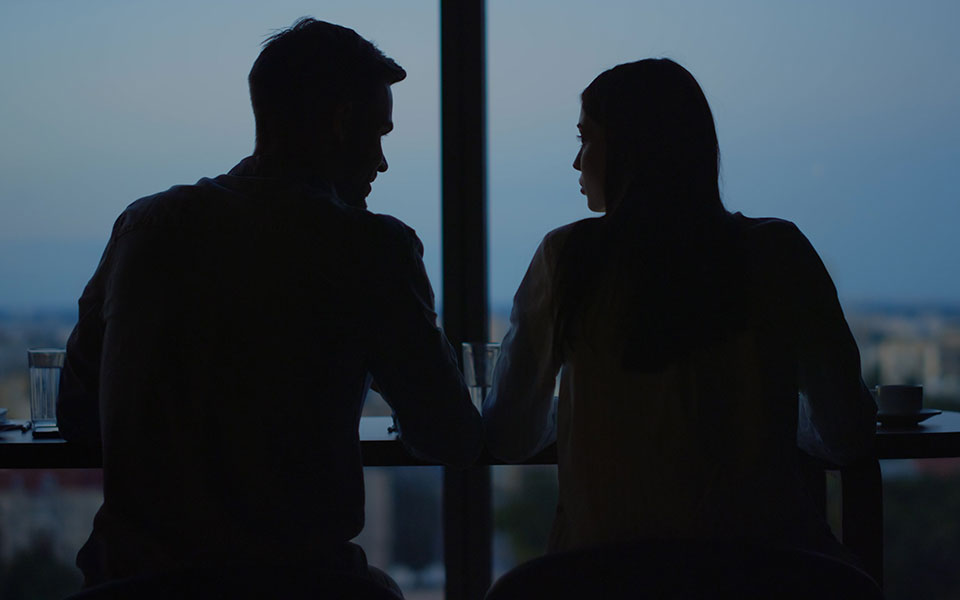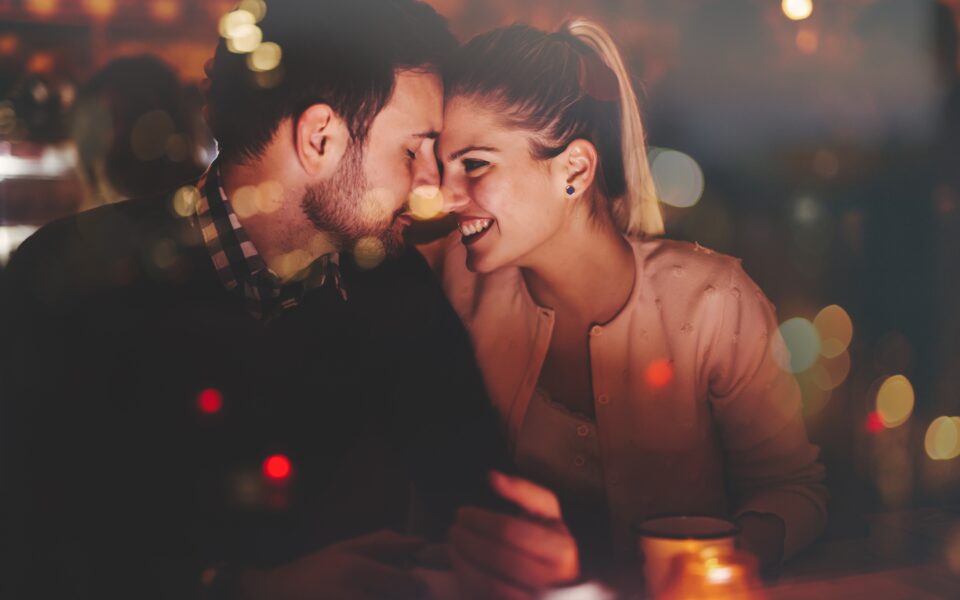
Now that most events around the world have re-opened, some couples created during pandemicdiscover that maintaining their relationship is not a given.
For many people, the pandemic has meant a relentless homeschooling routine, uncertainty about whether the weekend or vacation will come, and relationships that have begun to falter. For others, again, two years from quarantineled to something completely different: the beginning of a new attitude.
“We used to walk in the park where we could talk and get to know each other,” says Jessica Hayman, 31, of a man she met on Tinder during the 2020 UK lockdown. — It was great to have a good time. together, and it was almost like the summer romances you see in movies like Grease.
For Hayman, who lives in Brighton, UK, her own story, which began in lockdown, has been a powerful romance. She and her partner officially announced their relationship just two weeks after their first date.
They managed to spend whole months renting bikes and going on hikes—activities that allowed them to talk, explore each other, and also have fun… “like we were kids,” as Hayman describes it.
She notes that being isolated and temporarily out of work forced them to spend a lot of time together. She even describes how she felt their relationship was moving fast. But when pandemic restrictions hit, Hayman’s romance took a turn, and the demands of real life stressed both of them.
“I was terrified when I started dating all of his friends,” Hayman says, adding: “At some point we were in our own microcosm, and all of a sudden we were meeting five new people, me or him, in day. I wanted to go home to the TV and our sofa. I knew he felt the same way when he was out with my family one day and the next he came to brunch with all my friends. At the end of such a day, he looked exhausted. At first, it all seemed to us … too heavy to carry.
According to experts, Heyman is one of many who found their new relationship under strain after the restrictions were lifted..
Couples who met in the bubble, freed from the constraints and stresses of pre-pandemic life, had to struggle to adapt to the new conditions of post-COVID everyday life.
When social life and work resumed, elements of each individual’s personality and how they deal with situations that had hitherto remained hidden were simultaneously revealed.
And while some struggle with these differences to move on to a new chapter in their relationship, others feel it’s best to leave their romance behind…back to a period of self-isolation.
“Bubble” of self-isolation
Pandemic love stories have blossomed in an apparently unnatural environment. Free from the distractions of everyday life, couples could spend time with each other without interruption.
Many of the factors that were present in pre-coronavirus relationships, such as social gatherings and family gatherings, were not part of the relationships created during the pandemic.
But as couples began to emerge from quarantine, the “ingredients” of a normal relationship began to be added to the mix. So some couples have come out of quarantine and found that the reality of their relationship can’t compare to the “honeymoon” they enjoyed for the first time during lockdown.
“Many couples who have met during the pandemic have been blessed with what I and other relationship experts call the ‘couple bubble’, where two members of a relationship can have a large amount of ‘protected time’ without being distracted by the outside world,” he notes. Jessica Griffin is a clinical psychologist and relationship specialist at UMass Memorial Health in Massachusetts, USA.
“So those who formed the “social bubbles” have the opportunity to spend more time together. It also protected them from external influences – they had fewer opportunities to meet friends and family or even other potential lovers.
Jennifer Klesman, 36, fell victim to the “couple bubble” when she first met someone on the Bumble app in September 2020. Klesman, who lives in Chicago, has heard from friends that the “quarantine relationship” is getting stronger and maturing. at a faster pace, so she “embraced” the idea of seeing her partner two or three times a week and getting to know each other’s friends by playing video games together via FaceTime or Zoom. The couple even managed to take some day trips and vacations in Mexico when restrictions were lifted. Soon after, everything started to fall apart.
“Our socialization went from 0 to 100 very quickly and we were both tired of it all.Klesman says.
She also realized that the pandemic had “hidden” some truths about her new partner and that he was not as independent and financially secure as she initially thought.
When you are locked up at home, the above features are not easy to notice. For example, Klesman assumed her boyfriend was a full-time worker and had flexible hours, but later realized that her boyfriend ended up working part-time, which she didn’t realize at first because they were working remotely.
“Because we were able to work from home, I could assume that he was working longer than he really was,” she says.
Klesman also realized that the situation in his life did not turn out the way she expected. “I thought he moved in with his mother because of the pandemic, like many people, but a few months later I found out that he had been living there for five years and had no plans to leave,” she describes and adds: “The pandemic helped mask many of his characteristics, which, if I had known, I would have said no.

Prior to the aforementioned “revelations”, Klesman thought that as their relationship progressed, she and her boyfriend might move in together, but she began to realize that he didn’t seem to be interested in it after all.
Eventually, their relationship fell apart after 10 months. “I am extremely grateful that we were together in the winter of 2020, because at that time it was difficult to be alone in quarantine,” Klesman says, adding: “But we were not in the same chapter.”
Griffin explains that this is a common pattern in “blocking relationships”. The speed with which these couples have developed their relationship during the pandemic has made many realize that they don’t know each other as well as they thought. “These relationships were formed under stress and at a time when there was more incentive to mate quickly,” says Griffin, adding, “As the world reopens, relationship experts are increasingly hearing that couples are finding the transition to normal, more abnormal. than they expected.”
Extend “love locked up”
For Hayman, the first months of their relationship were like a summer movie romance, but immediately after the quarantine, Hayman began to find difficult the practical problems of this relationship, which now had to “compete” with work, family and friends. Returning to the office—five days a week for her boyfriend and three for her—meant they spent far less time together, and weekends that used to be spent exclusively together now had to juggle their many social responsibilities.
“Priorities and needs may have changed for many as society began to open up again, and with it the demands of a new era,” she explains, adding: “While in some couples they may turn to each other and make the transition together, for for other couples, this adjustment can lead to relationship difficulties.
People also face new types of stress and new stressors, such as returning to socializing or returning to the office. It can affect a person, and how partners support each other determines how well they adjust to each other and whether they stay together.”

For couples currently going through this transition, Cohen says there are practical steps that can help. “It is important to have an open and honest conversation about what you are experiencing and to articulate your needs,” she explains, adding: “For example, while some people welcome a return to everyday life and socializing, for others it can be overstimulating.” . after a month of working from home. If it’s important for a person to spend a quiet night alone with their partner, they should share it.”
Griffin adds that just because two people’s “social bubbles” change doesn’t mean their relationship has to end. As she explains, “Couples can come up with new ways to protect their bubble, such as scheduled date nights, daily check-ins, and shared routines.
Couples who create “rituals” and routines in this way create psychological security in their relationship. Having predictable and stable elements in your relationship sends signals to the brain that you are safe, and this is very important when we talk about human relationships.”
Stronger Relationships
Although Klesman’s “love locked up” eventually ended, she harbors no negative feelings about her experience. Although she mentions that if it weren’t for the pandemic, she probably wouldn’t have become a couple with her ex, she notes that he is a good and kind person who made her understand what she needed in a future relationship.
On the other hand, Hayman and her partner have set up a schedule where they see their friends and family twice a week. Even though she had a hard time adjusting to “date nights” instead of spending time with her partner, Hayman says, she’s still deeply in love.
The couple is still going strong, and they are happy that the problems that initially arose have been resolved after the end of the lockdown.
As she describes: “Our relationship has grown a lot during the pandemic. It’s like the whole first year of the relationship “disappeared” within a month, but now the feeling of our connection has become stronger. After all, the fact that we spent so much time together in the beginning was a good test.”
Source: BBC
See all the latest news from Greece and the world at kathimerini.gr
Source: Kathimerini
Robert is an experienced journalist who has been covering the automobile industry for over a decade. He has a deep understanding of the latest technologies and trends in the industry and is known for his thorough and in-depth reporting.